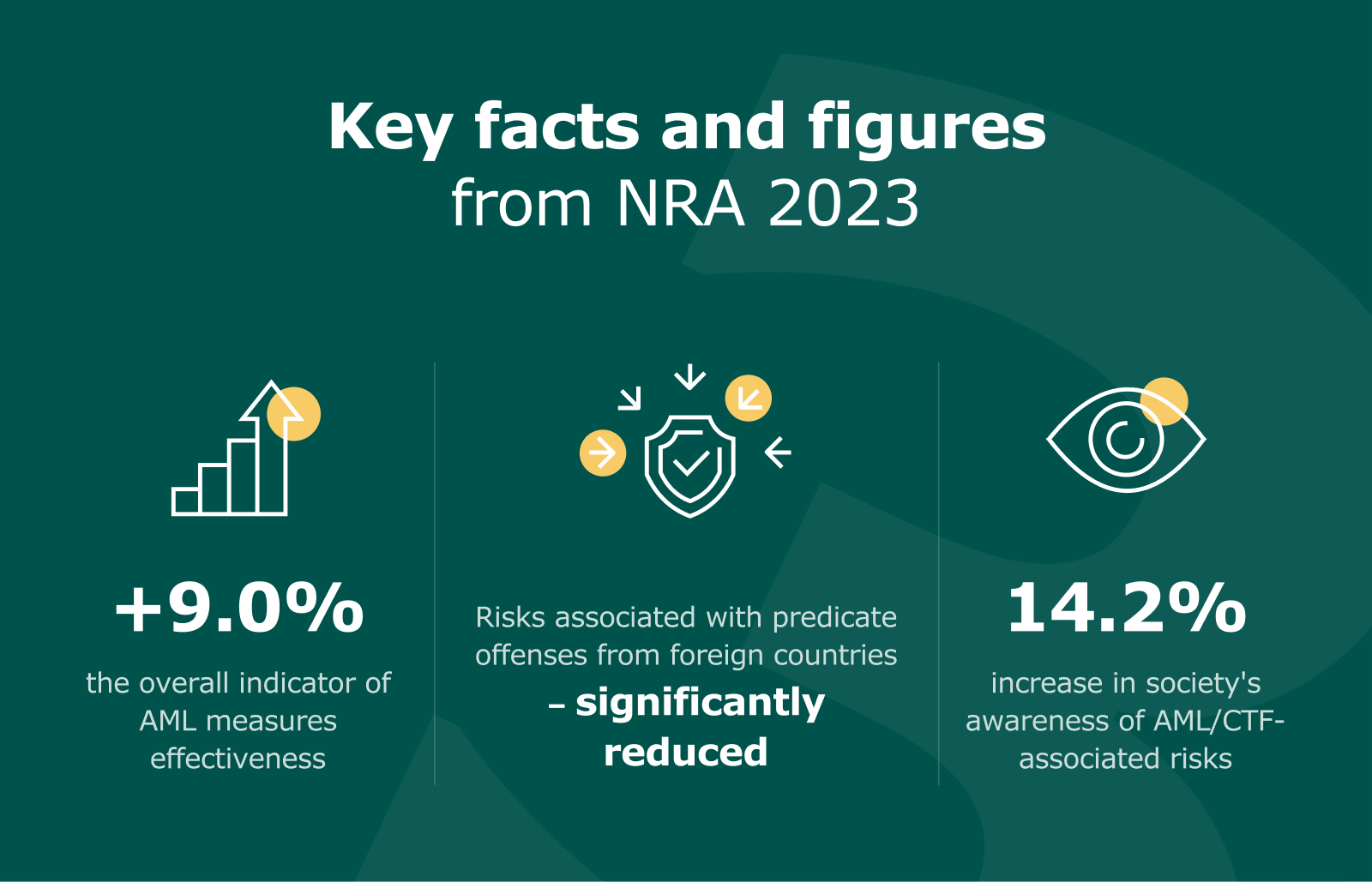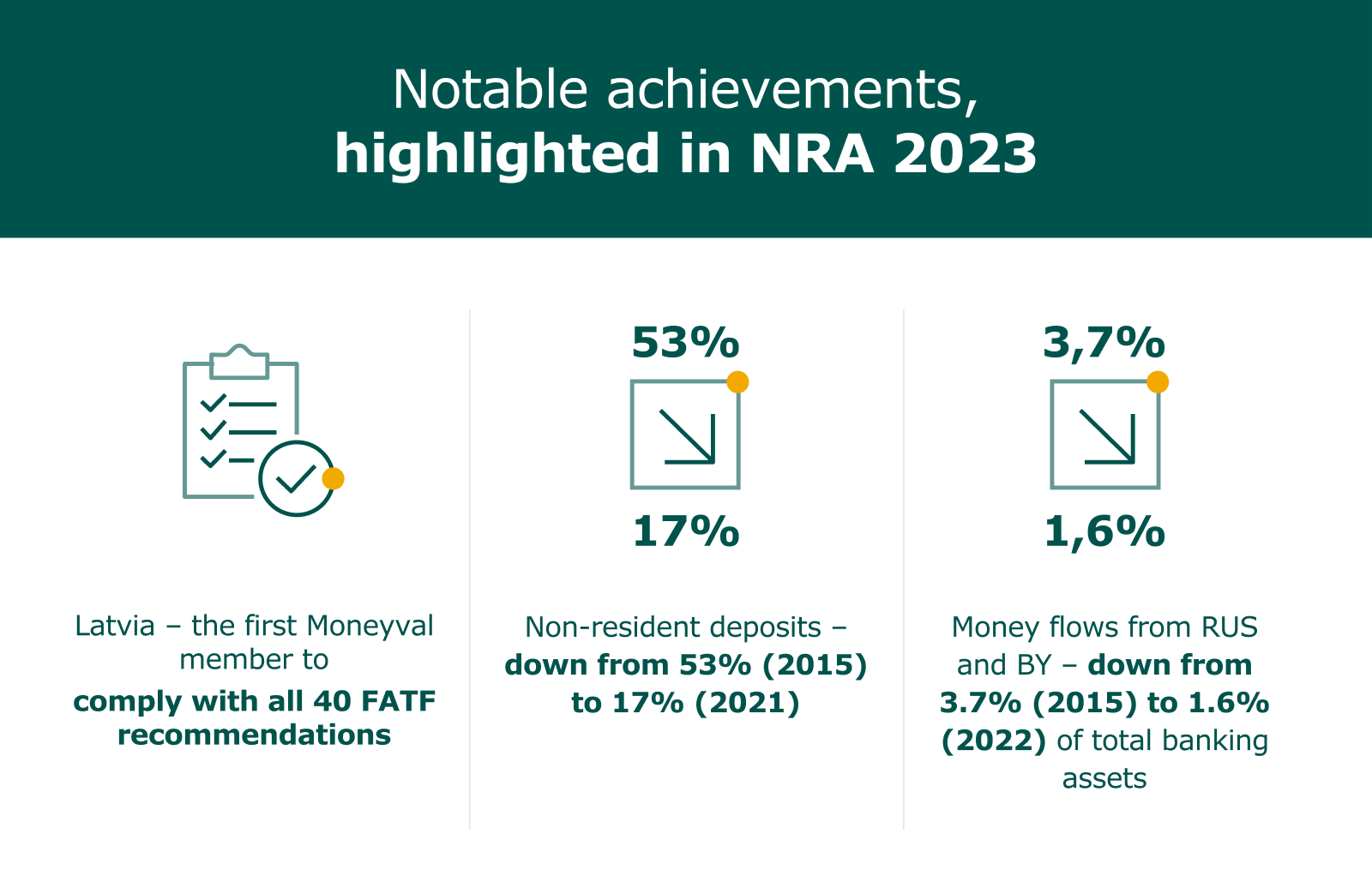2026-01-20
FIU Latvia: Latvia outside the high-risk zone in the global context of environmental crime
18.10.2023
Past quarter the Financial Intelligence Unit (FIU) has been actively working to complete the National Risk Assessment for 2020-2022 (NRA 2023).
It’s important to emphasize that the overall indicator of anti-money laundering measures effectiveness has increased by 9.0%, public awareness about the risks of financial crimes has increased by 14.2%, also all recommendations of the Financial Action Task Force have been implemented, thus allowing Latvia to become the first Moneyval member state to achieve such result in 2020, etc.

“The public should be aware of the harm inflicted by financial crime. It's crucial to understand that, for example, corruption crimes or every euro not paid in taxes actually deprive the country of the resources needed to carry out its functions,” indicates Paulis Iļjenkovs, Deputy Head of FIU of Latvia. He also explains the importance of the NRA 2023 and risks identified in the report, and informs about the upcoming Moneyval assessment, in which the NRA 2023 will play a pivotal role.
A detailed description of the results, conclusions and priorities set will be published at the end of October, however get a first glimpse of the NRA 2023 results in the latest FIU newsletter.

You can also learn about the key emerging challenges in the prevention of financial crimes for Latvia, the financial service think-tank launched with the support of EU, new platform and app launched by Anti-corruption Agency of Latvia that will help to conveniently, safely and anonymously report cases of corruption.
More details are available: The Financial Intelligence Unit’s latest newsletter
2026-01-20
FIU Latvia: Latvia outside the high-risk zone in the global context of environmental crime
2026-01-19
Riga hosts discussions on financial crime policy

